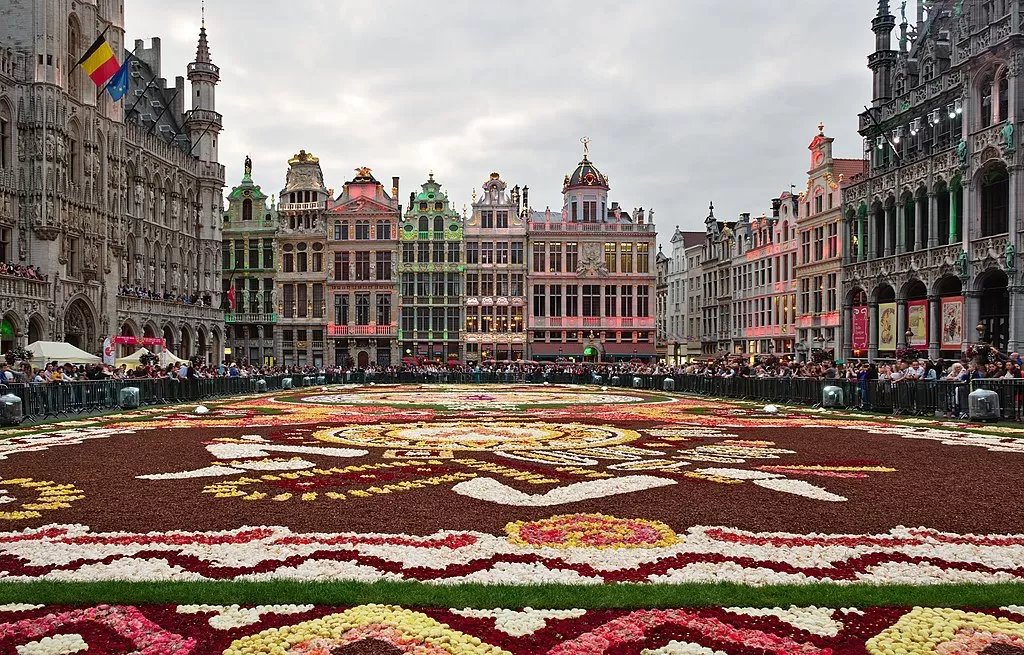
How to Move to Belgium
The process of moving to Brussels may not be all that easy, but it's not impossible. In fact, it's pretty straightforward. Depending on where you're coming from, you may need to apply for a long-term visa to enter Belgium. Those who come from fellow Schengen Area countries, however, are exempt from this. What everyone, regardless of where they came from, still has to do, however, is to get a residence permit. There are different kinds on offer, specifically for the reason for your long-term stay (or in this case, relocation) in the country. There are work permits, study permits, family visas, and more.
Is Brussels a Good Place to Live?
Yes, it is. Not only is the Belgian capital a beautiful city and a fairly popular tourist destination, but the standard of living here is quite high. Though it may get expensive at times, every cent you pay for all the living expenses here is all worth it. And in terms of safety, the crime rates in Brussels are just moderate, which means that while you still need to be careful, there's serious cause for concern.
Brussels Overview
Brussels serves as the capital city of Belgium, a country in Western Europe. It currently has a population of over 2.122 million residents, making it one of the largest Belgian cities out there. As the country's capital, Brussels is also a major business and finance hub, with various local and international companies operating here. Most famously, it's the home of the North Atlantic Treaty Organization (NATO) headquarters, one of the most important economic alliances in the world. As such, the city is also home to many ambassadors and diplomats.
What is Brussels Best Known For?
Apart from NATO, Brussels is also famous for its historic beauty. From the Grand Place to the Temple of Human Passions in Parc du Cinquantenaire, every corner boasts an architectural marvel or two. Even its museums are filled to the brim with the works of Flemish masters, legendary French painters, beloved Italian sculptors, and the like. In a nutshell, Brussels is the archetypal tourist-friendly capital city, a good mixture of liveliness, artistry, and old-world appeal.
Why Visit Brussels, Belgium?
The architecture, the art, the history, the food, the fashion, and more. Brussels may not be known for one singular thing (i.e. Rome for history, Paris for fashion & food, Barcelona for art, etc.), but that's not necessarily a bad thing. This just means that the Belgian capital has something for everyone, no matter your interests. History buffs can visit the centuries-old palaces, art lovers can go museum-hopping, and foodies can indulge in as many Belgian waffles and chocolates as they want!
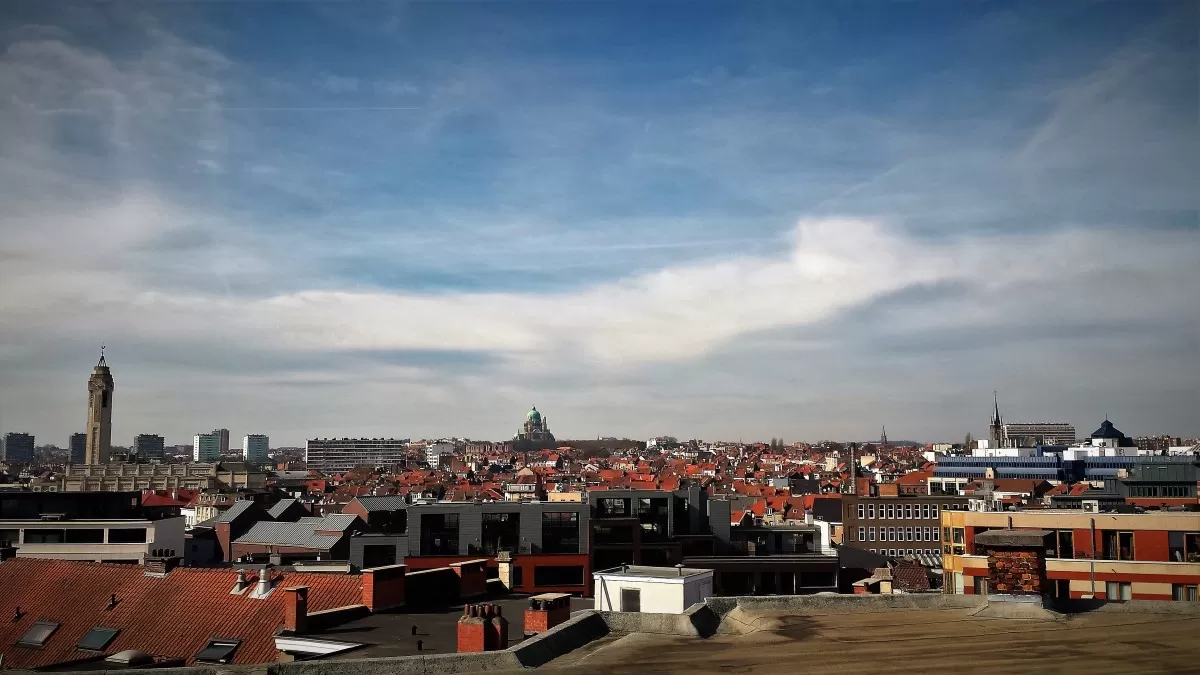
Visa in Brussels
As already mentioned, there's a possibility that you'll need to get a Schengen Visa just to enter Belgium, let alone relocate to Brussels. But not all are required of this. Official citizens/residents of fellow Schengen countries can go to Belgium without a visa. However, they'll still need to get a long-term/residence permit to stay in the country for more than three months. It's the same for everybody else who plans to stay in Brussels for a long time (or in this case, the rest of their lives).
Do You Need A Visa to Go to Brussels?
If you come from a non-Schengen country, then chances are you need to apply for a Schengen Visa to get to Belgium. That is if your country isn't part of the ETIAS Visa Waiver Program. Just as its name says, this program allows citizens/residents of certain countries outside of the Schengen Area to enter Europe without a visa. They include the US, the UK, the UAE, Japan, Israel, Australia, Brazil, Chile, South Korea, Singapore, and more. Those coming from other countries will still need the proper visa to enter and stay in Belgium for a long time.
Brussels Visa Requirements
Although the complete list of requirements for applying for a Schengen visa differs from country to country, there are documents that remain the same across the board. They include:
Visa application form
Valid passport
Passport photos
Flight itinerary
Travel medical insurance
Proof of accommodation
Proof of financial means
Proof of reason for going to the country (i.e. enrollment letter from the school, letter from company for work relocation, etc.)

Getting Around Brussels
Although living in a big city like Brussels has its problems, one that you won't ever encounter is getting around. Public transport in Brussels is pretty efficient, leaving you no excuse to not get to where you need to be. You can always take the underground metro, trams, buses, taxis, and bikes.
How to Get Around Brussels
If you're rushing to get to your destination on time, your best bet is to take the metro. Do take note that rush hour tends to be very crowded, so much so that it's possible you won't get to your train in time. And if your destination is fairly far from the more central areas, you're better off taking a bus or taxi. The former has more lines and routes compared to a metro while the latter lets you go even in the most hidden corners. But if you truly have no choice but to take a taxi, consider using a transportation app instead. These programs let you get a ride no matter where you are in the city.
How to Use The Metro in Brussels
Taking the metro in Brussels is fairly straightforward. You go down to the station, buy a ticket, and hop on when the train arrives. You can buy a "contactless ticket" too, which gives you access to the metro at a given time. There's the one-hour contactless ticket, which costs €2.10 each, and a 24-hour ticket which costs €7.50 each. Moreover, follow proper commuting etiquette by waiting for the passengers inside the train to exit before boarding it yourself.
Public Transport in Brussels
Perhaps the easiest way to take public transport in Brussels is to buy a MOBIB card. It only costs €5.00 and you can reload it again and again to pay for rides in the metro, trams, buses, and more. It's especially helpful when you commute during the rush hour. You won't have to line up to buy a single-ride ticket.
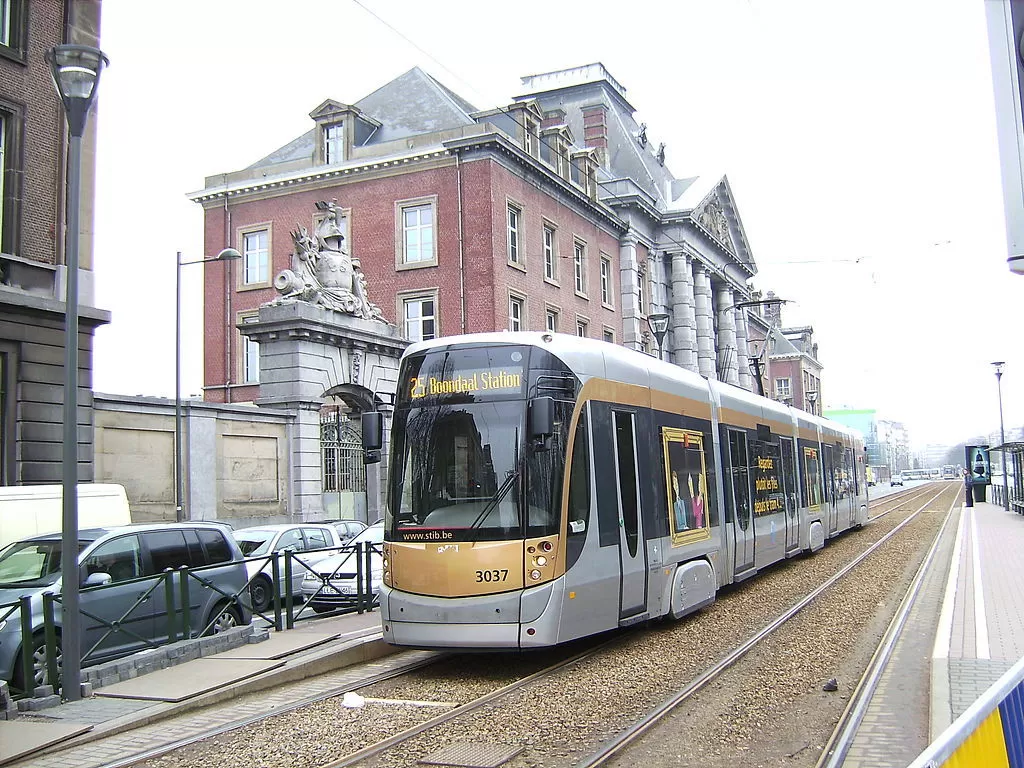
Where to Live in Brussels
Part of relocating anywhere is finding the right place to settle down. Take the various neighborhoods in Brussels, for instance. The city as a whole is a great place, but there are certain areas here that'll suit you more than others. It depends on the kind of lifestyle you want to live in the Belgian capital.
Where to Stay in Brussels
Although you should go for the area that suits your lifestyle best, there is a general consensus that Ixelles, Saint Gilles, Schaerbeek, Woluwe-Saint-Pierre, and Etterbeek are some of the best places to live in Brussels. Of course, they're great for different reasons. Ixelles, for example, is a popular cosmopolitan neighborhood with lots of hotspots. Etterbeek, on the other hand, is an inner-city suburbia perfect for families.
Where to Stay in Brussels for Your First Time
Is it your first time in Brussels? Then you'll want to stay in the Brussels City Center and Avenue Louise. These are two of the most famous neighborhoods in Brussels. The city center is where you'll find the iconic Grand Place and all the different establishments surrounding it. It's a healthy mix of strong tourism and a bustling local life. Then there's Avenue Louise, the Champs-Elysées of Brussels. Just like its Parisian counterpart, Avenue Louise is an affluent area filled with high-end boutiques, designer stores, Michelin-starred restaurants, and more.
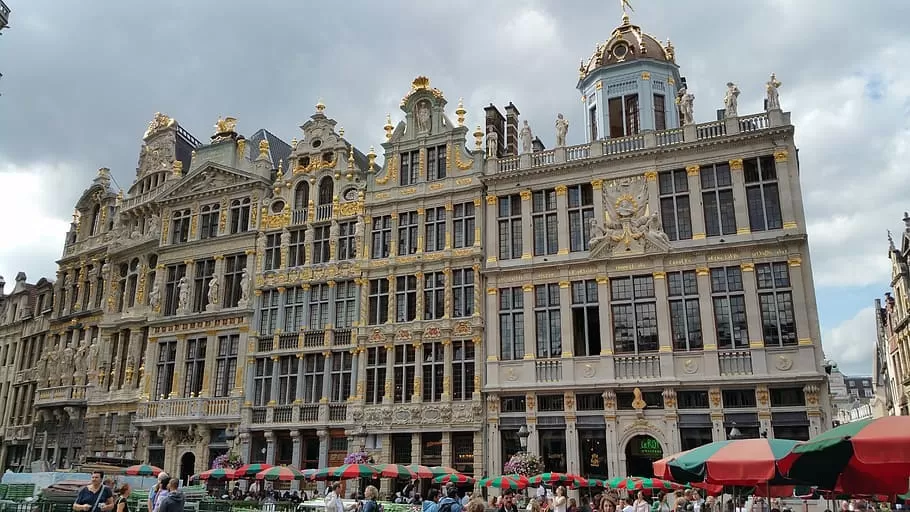
Living Costs in Brussels
Major cities tend to be pretty expensive, especially if they're the capital cities of European countries. So does this ring true in Brussels? Yes, it does. The Belgian capital may not be the most expensive city in the world, but it still costs a pretty penny to live here. To give you an idea, Numbeo found that a single adult spends around €980.00 per month without rent. And since the common rental fees here range from €750.00 to €2,500.00, you'll barely have enough for your savings!
Living Expenses in Brussels
Living in Brussels is pricey, not because the costs themselves are high, but more often than not, the total amount of expenses you pay every month makes up a big chunk of your monthly income. Take your rent, for example. When you rent a luxury apartment in Brussels, you'll be spending around €750.00 to €2,500.00 per month. It depends on where it's located and how big it is (i.e. how many rooms it has). You'd think that a solo apartment outside of the city center would cost a lot less, but the average monthly rent for one is still around €860.60.
Is Brussels Expensive to Live?
Yes, it is. There's no going around it. In the grand scheme of things, it's relatively expensive to live in Brussels. Is it just as costly as living in Paris, Rome, London, etc.? Not necessarily. But the living costs in Brussels are still considerable higher compared to a variety of other cities around the world. Even a family of four will spend an average €3,421.70 per month. Here's to hoping it's a two-income household!
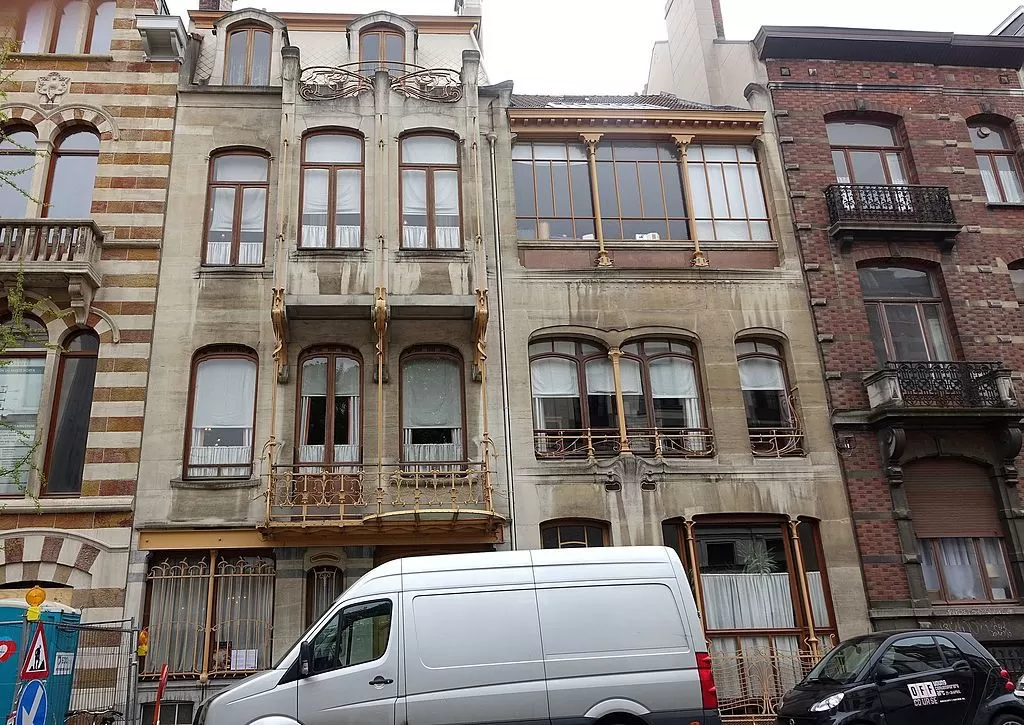
Employment in Brussels
Moving to Brussels means you need to start working here too. You need to make a living, after all. More often than not, people get to relocate to Brussels (or anywhere else, for that matter!) when their work transfers them there. But on the off chance that you managed to move to the city, you'll then need to find new employment here instead.
Can I Work in Belgium?
First things first, you need to know if you can even work in Brussels in the first place. If you're just a new resident in Belgium, are you allowed to find employment here? Yes, you are as long as you've gotten a work permit. You can either apply for a work visa before getting to Belgium or get one when you've acquired legal residency in the country.
How to Get a Job in Brussels
As a whole, finding a job in Belgium isn't all that complicated. The digital landscape has made it easier for anyone to land employment practically anywhere, including Brussels. Just go on job-seeking sites, apply on the posted job listings, and wait until they get back to you. Another option is to seek the help of a recruitment agency. Submit your CV to them and they'll help you find the right position in the right company. With all of that said, it's still worth noting that the Belgium’s job market is highly competitive, especially in Brussels. You'll need to have an impressive CV or excellent interviewing skills (better if both!) to guarantee a job in this city.
Jobs in Brussels, Belgium
Since it's a bustling metropolis, Brussels has a lot of jobs on offer. They range from big business executives to service staff in popular restaurants. The job market may be competitive, but it's not entirely impossible to land employment in such a busy city. Fortunately, Brussels has an especially abundant amount of office jobs on offer. These are the kinds of jobs that'll help you earn enough to keep up with the city's high cost of living.

Education in Brussels
If you move to Brussels with your entire family, one thing you'll have to think about is where your kids will continue their schooling. Don't worry! There are many great schools in Brussels, many of which are perfect for your little ones who may only know how to speak English and your native language.
Does Belgium Have a Good Education?
One of the best things about Belgium is its education. The country consistently ranks high in annual reports by the economic organization OECD, more or less in the top 10 of the entire world. That alone speaks volumes on the quality of education your kids will have here in Brussels.
Schools in Brussels, Belgium
Some of the best international schools in Brussels include the Scandinavian School of Brussels, The British School of Brussels, and the Brussels American School. It's not just that these educational institutions offer curriculums of major countries, but they also have great campuses, first-class facilities, and are safe and secure. You'll have no problem enrolling your little ones in these schools!

Healthcare in Brussels
Education isn't the only good thing you can expect in Brussels. There's also the excellent Belgian healthcare system. Like education, Belgium consistently ranks high among the world's best healthcare systems. This is largely thanks to the country's well-thought-out system and high-quality medical services. You'll see it for yourself here in the Belgian capital.
Does Belgium Have Universal Healthcare?
Yes, it does. the country offers both the public national healthcare system and private medical coverage. The former makes getting treated partially free. You don't have to pay for it prior to and while you're getting treatment, but rather you get reimbursed by your insurance.
Hospitals in Brussels, Belgium
When you move to Brussels, you need to take note of the Chirec Hospital, CHU Brugmann, Institut Jules Bordet, and Hôpital Erasme ULB. Why? Because these are some of the best hospitals in Brussels. Not only do they provide high-quality services and expert medical treatments, but they also have first-class facilities and awesome amenities. Not to mention some of them are international institutions too, allowing you to seek medical care without any language barrier problem.

Safety in Brussels
Now, let’s about safety. A huge problem concerning big cities like Brussels is that they oftentimes have high crime rates. Even the most popular cities in the world are far from the safest. Some are even downright dangerous despite their fame. So how does Brussels fare in this? Well, it's safe to say that it's in the middle!
Brussels Crime Rate
The crime rates in Brussels aren't high, but they're not that low either. Currently, the Belgian capital has a general crime rate of 59.41%, which is considered moderate. It's a cause for concern, sure, but nothing to be alarmed by. With that said, the city's current rate of increasing crimes is 68.07%, which is considered relatively high. It's one to keep your eye on as you move to Brussels and start a new life here.
Is It Safe in Brussels, Belgium?
To answer no to this question isn't all that fair. It's true that the crime rates in Brussels are far from the lowest but that doesn't mean the city is inherently dangerous. On the contrary, the Belgian capital's safety rate during the day is actually quite high. At 65.31%, you're free to roam the city on your own without the risk of getting into all sorts of trouble. At night, however, it's a different story.
Is Brussels Safe at Night?
Since Brussels stays largely safe during the day, is it the same at night? Unfortunately, it's not! The city's safety rate drops to a low 35.02% come nightfall, an almost 50% decrease. This just goes to show that even a beautiful city like Brussels can't escape the dangers that lurk after dark.
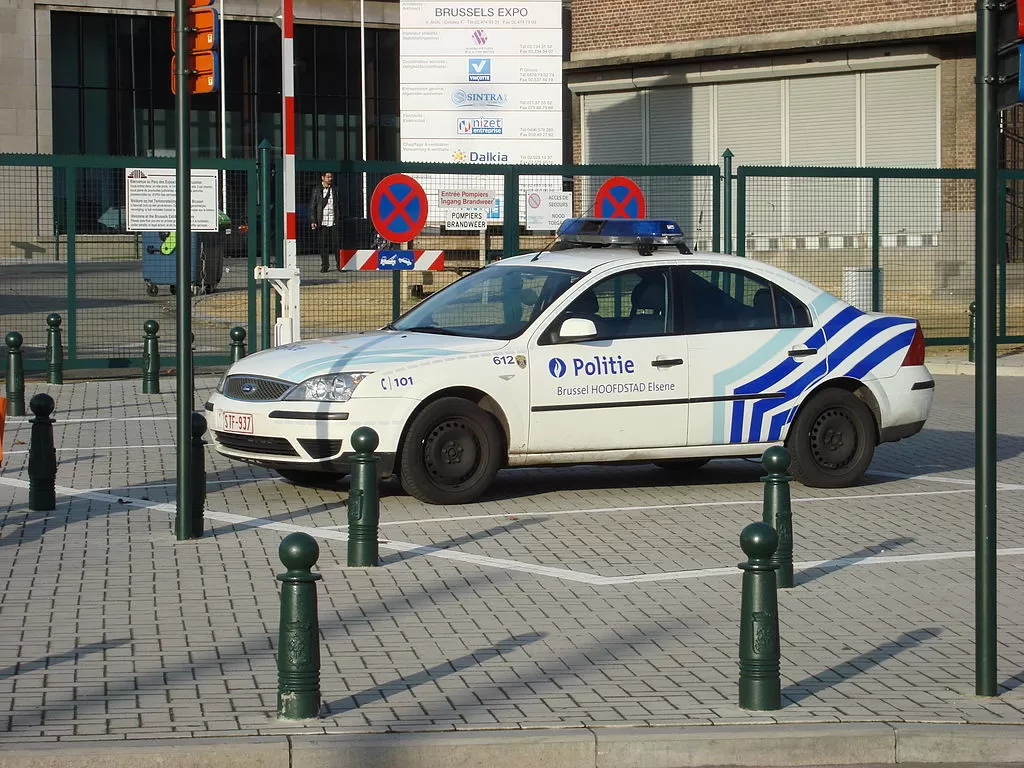
Taxes in Brussels
Don't forget that moving to Brussels means you'll have to start paying taxes to the Belgian government. As such, it's vital to at least know about the basics of the Belgian tax system. For one thing, various taxes differ depending on the region. The tax rates in the Flemish Region are considerably different from those in the Walloon Region. The same goes for those in the Brussels-Capital Region, where the city is located.
What are The Taxes in Belgium?
Much like the rest of the world, Belgium taxes its residents on income, property, inheritance, gifts, and goods & services. One that you must pay attention to is your income tax. The rate of which you have to pay depends on how much you earn in a year. The higher your salary, the higher your income tax rate. The tax rates range from 25% (for those who earn up to €15,200.00 a year) to 50% (for those who earn more than €46,440.00 a year).
Expat Taxes in Belgium
For those moving to Belgium from another country, there's also the Expatriate Tax Regime for executives and specialists. It's a new scheme wherein those who work in Belgium have 30% of their income exempt from taxes. Unfortunately, however, this doesn't cover all expat employees in the country. Only those who earn €75,000.00 a year are qualified.

Relocation Tips for Brussels
Before ending this Brussels relocation guide, here are. few tips worth remembering before you get to the city (or on your first few days in Belgium!).
Open a local bank account in a Belgian (or international) bank.
Join a local Belgian mobile network.
Learn Belgian social customs and always follow them!
Enroll in a language school in Brussels if you're not confident in your fluency.
Take time to memorize the routes you'll be taking regularly.
Make friends and build a solid network.

Moving to Brussels may just change your life in more ways than one! But before you think about settling down here, you need to focus on how to go about the relocation process first. Let this guide help you along the way!